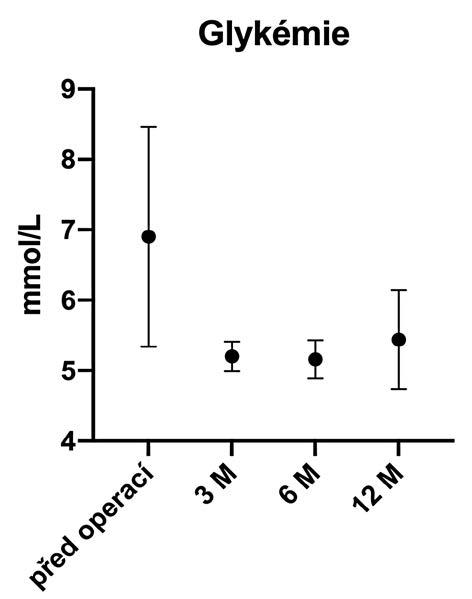Abstract
Introduction: Bariatric-metabolic surgery is an effective tool in the treatment of severe obesity and related diseases. Its importance has increased even more in the era of the type II diabetes mellitus and COVID 19 pandemics. The aim of our study is to present the initial results of a new operation that minimizes surgical trauma.
Methods: In the prospective study, laparoscopic side-to-side anisoperistaltic jejunocolic anastomosis was constructed in order to derive part of the chyme by the anastomosis. Patients were operated in the period of IV/2018−VII/2019; their mean age was 48.43±10.36 years, mean weight 112.3±16.6 kg and mean BMI 41.9±5.2. Patients were examined one month before surgery and then followed at 3, 6 and 12 months after surgery. We evaluated weight loss and changes in carbohydrate metabolism.
Results: We did not record any perioperative or postoperative surgical complications. There was a statistically significant weight loss during the study period. There was a significant decrease in absolute weight in kilograms (p<0.001) and in BMI (p<0.001). The reduction in overweight expressed by the EWL (excess weight loss) index was 82.9% after 12 months. As regards the carbohydrate metabolism, we observed a statistically significant reduction in fasting blood glucose after three months (p=0.04) and after six months (p=0.03). Blood glucose values were reduced after 12 months; however, no statistical significance was demonstrated (p=0.09). Although a decrease in glycated hemoglobin A1c (HbA1c) was reported, no statistical significance was demonstrated.
Conclusion: Our proposed operation represents a new option in the treatment of severe obesity and related diseases. Preliminary results are promising. It will be necessary to monitor a larger number of patients over a longer period.

